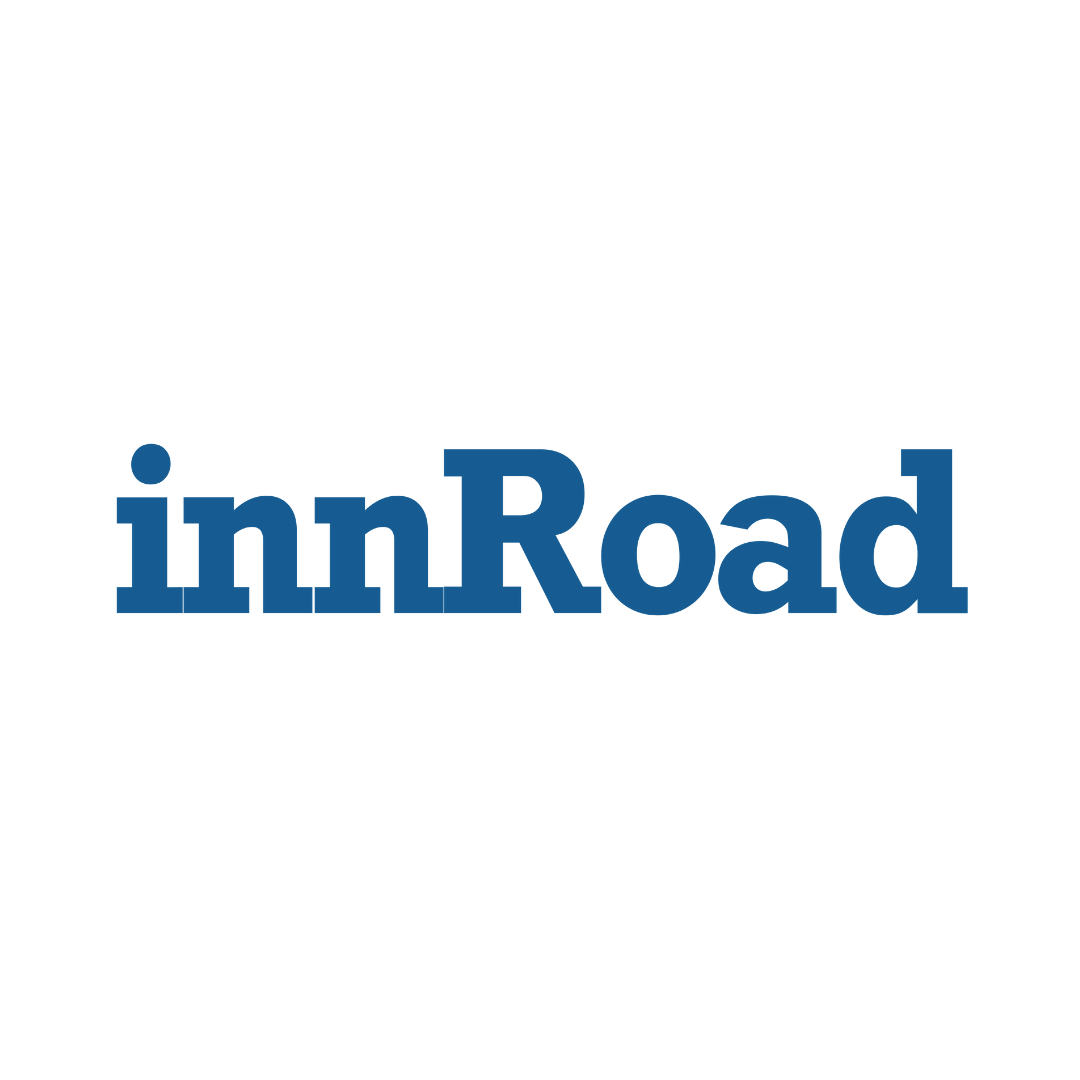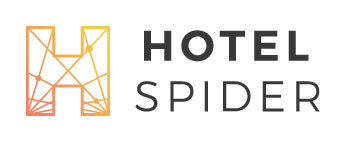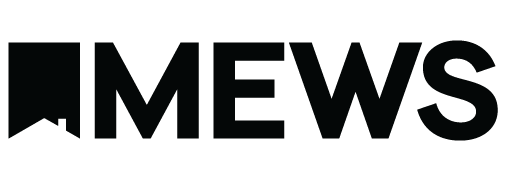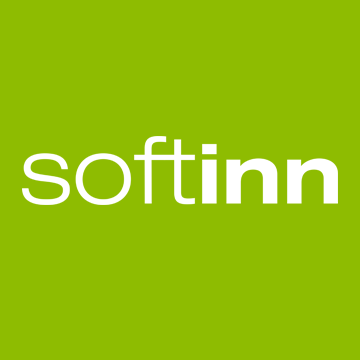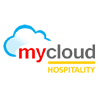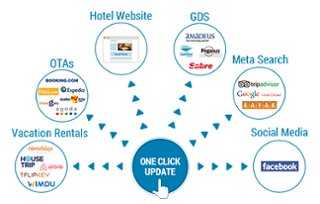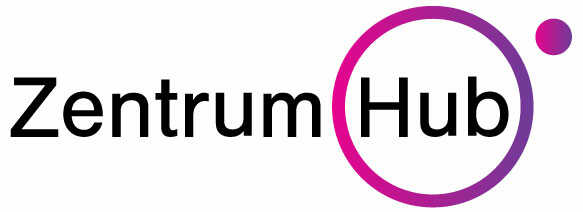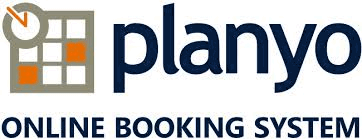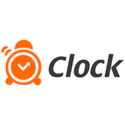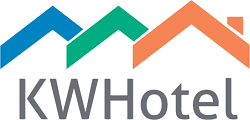Yes, most modern hotel booking software can be accessed from numerous devices and platforms. Whether you're using a desktop, laptop, tablet, or smartphone, you can quickly access the software and make reservations while on the road. In terms of platforms, the program is typically compatible with both iOS and Android devices. This makes it easier for hotel workers and customers to handle bookings and reservations across several devices.
List of 20 Best Hotel Booking Software
innRoad is a cloud-based hotel management software. Our all-in-one solution comes equipped with a booking engine and property management tools, fully customizable to suit businesses of all sizes. Say farewell to manual processes and hello to streamli...Read More innRoad
BOTSHOT Smart Booking - the premier Hotel Booking Engine designed specifically for your hotel. Elevate guest experience, boost direct bookings, and surpass competitors in the ever-changing hospitality landscape. With its effortless functionality and...Read More BOTSHOT Smart Booking
HotelFriend is a cloud-based platform specially designed to enhance hotel operations, boost revenue, and enhance guest satisfaction. It caters to all types of properties and offers streamlined solutions for reservations, payments, and task management...Read More HotelFriend
Zoplay Vacation is a vacation rental software that streamlines the process of managing your property and provides a relaxing vacation for your guests. With a user-friendly web-based platform, Zoplay Vacation offers a wide range of features and can be...Read More Zoplay Vacation
Hotel-Spider is a software created by Swiss tech professionals to enhance visibility and optimize online sales for your hotel. Our intuitive and transparent hotel extranet streamlines the management of all your sales channels in a single platform. Le...Read More Hotel-Spider
Welcome to Mews is a cloud-based platform designed to transform the way hotels, hostels, and serviced apartments are managed. Created by industry experts, our intuitive solutions are focused on enhancing guest experiences, automating tasks, and boost...Read More Mews
STAAHs cutting-edge Channel Manager empowers hotels to effortlessly distribute their room inventory across various channels. Its intuitive interface enables hoteliers to efficiently handle rates and availability from a centralized dashboard, boosting...Read More STAAH
Tosskey, the premier Hotel Channel Manager. Our cutting-edge software streamlines inventory control across all integrated booking platforms, avoiding double bookings and upholding rate consistency. With Tosskeys advanced features, you can effortlessl...Read More Tosskey
RevCatalyst is a cloud-based solution that revolutionizes hotel operations. With a platform offering property management, channel management, revenue management, and real-time website integration, RevCatalyst empowers hotels to optimize their process...Read More RevCatalyst
Softinn Booking Engine is solution for managing your hotels direct bookings and having complete control over your business. With a seamless integration into your Facebook page, guests can easily make reservations without ever leaving the platform. Th...Read More Softinn Booking Engine
PSM Hotel Booking Script, a user-friendly and highly versatile software built with PHP, Mysql, and Ajax. Simplify managing and customizing bookings, accepting payments, and handling reservations and events with our easy-to-use platform. Streamline yo...Read More PSM Hotel Booking Script
mycloud PMS is a hotel management software that has earned a reputation for its dependable performance and robust security measures. Boasting a wide range of satisfied customers, it has become the go-to option for efficiently managing hotel operation...Read More mycloud PMS
the impressive C2S HUB Hotel Channel Manager solution to streamline your hotel operations. Our cutting-edge Booking Engine Software offers a user-friendly interface, exceptional performance, and a variety of beneficial features. Experience effortless...Read More C2S HUB Hotel Channel Manager
ZentrumHub - the perfect solution for all your hotel booking needs. With our comprehensive platform, we cater to both B2B and B2C requirements, offering a seamless end-to-end experience. From our efficient Booking Engine and Supplier Connect feature...Read More ZentrumHub
Planyo is a versatile online reservation system that caters to the needs of various businesses, allowing them to efficiently manage bookings ranging from a few minutes to days or performances. Its customizable features make it the ideal solution for...Read More Planyo
A state-of-the-art Travel Hotel Booking software, providing users with a seamless and stress-free online booking experience. A easy-to-navigate interface displays real-time availability and allows for instant reservations, all while utilizing the lat...Read More Travel Hotel Booking
Clock PMS is a cloud-based solution for efficiently managing single hotels or property groups. Our cutting-edge platform features a digital guest portal, commission-free web booking engine, channel manager, group CRS, and online POS system. With Cloc...Read More Clock PMS
Clovatel, the premier cloud-based software for effective hotel management. Our all-inclusive system boasts cutting-edge features, including Self-Service Kiosk and Mobile Check-in, to simplify and improve hotel services. Experience the latest in mobil...Read More Clovatel
KWHotel, a management system ideal for small and medium accommodations. Its versatile design caters to a wide range of rentals, from yachts to surfboards. Whats more, the software is completely free. Simplify your daily tasks and elevate your guest s...Read More KWHotel
HemWebApps Hotel Booking is a top-notch software with a user-friendly interface and an extensive range of features. Utilizing well-known open-source technologies like php CMS and MySQL, our script simplifies installation and customization. Our Joomla...Read More HemWebApps Hotel Booking
Learn More About Hotel Booking Software
- What Is Hotel Booking Software?
- What Are The Recent Trends In Hotel Booking Software?
- Benefits Of Using Hotel Booking Software
- Important Factors To Consider While Purchasing Hotel Booking Software?
- What Are The Key Features To Look For In Hotel Booking Software?
- Why Do Businesses Need Hotel Booking Software?
- How Much Time Is Required To Implement Hotel Booking Software?
- What Is The Level Of Customization Available In Hotel Booking Software?
- Which Industries Can Benefit The Most From Hotel Booking Software?
- Conclusion
What Is Hotel Booking Software?
Hotel booking software is a digital system that streamlines and simplifies the process of managing reservations, inventories, and guest bookings in hotels and other lodging enterprises. It is a complete solution with a variety of features and functionalities to assist hoteliers in managing their daily operations and increasing overall efficiency.
Hotel owners and managers can use hotel booking software to quickly access and change real-time availability and room rates, manage bookings and reservations, and track and analyze performance statistics. It also enables seamless connection with other systems, such as online travel agents and property management systems, ensuring a smooth booking experience for customers.
One of the primary advantages of adopting hotel booking software is its capacity to automate and streamline manual operations, hence lowering the risk of human mistake and increasing productivity. It also includes services like online payment processing, automatic guest communication, and customisable room and service packages, which help hotels attract and keep customers.
Other significant characteristics to consider when selecting hotel booking software are mobile accessibility, multi-language and currency compatibility, and reporting and analytics capabilities for tracking performance and making educated business decisions. Hoteliers may use the correct hotel booking software to manage their operations, increase direct reservations, and, eventually, improve their profits.
What Are The Recent Trends In Hotel Booking Software?
The hotel industry is always evolving, and as technology advances, so does the way hotels operate and manage bookings. Hotel booking software has become an essential tool for hoteliers looking to streamline their operations and boost productivity.
Let's explore, the latest developments in hotel booking software that you should be aware of before making a buying decision.
1. Cloud-Based Software: One of the most significant changes in hotel booking software is the transition to cloud-based solutions. This enables hoteliers to access their booking system from anywhere and at any time, making it easier to handle bookings while away from the property.
2. Mobile-Friendly: Because the majority of passengers now book their lodgings using mobile devices, hotel booking software must be mobile-friendly. It should have a responsive design and provide a seamless booking experience across several devices.
3. Personalization: Hotels are increasingly using data and analytics to tailor the booking experience for its guests. This includes making personalized recommendations based on their interests and previous visits, thereby improving the entire guest experience.
4. Integration With Other Systems: To increase efficiency, hotel booking software is now linked to other systems such as property management, channel management, and revenue management. This enables automated operations and decreases the possibility of errors.
5. Real-Time Updates: To prevent overbooking, the program should provide real-time information on room availability, pricing, and bookings. This also allows hotels to adjust or update their inventory and pricing in real time.
6. Artificial Intelligence: AI has made inroads into the hotel industry, and hotel booking software is no exception. Hotels can use AI to automate procedures, increase productivity, and deliver personalized recommendations to visitors, all of which improve the overall guest experience.
7. Contactless Solutions: In the aftermath of the COVID-19 outbreak, contactless solutions have become indispensable in the hotel industry. Hotel booking software now includes features like online check-in and contactless payments, which reduce the need for physical touch and promote safety for both guests and employees.
Benefits Of Using Hotel Booking Software
Hotel booking software is a sophisticated technology that has transformed the way hotels manage reservations. It completely automates the booking process, from availability and pricing to payment and guest communications. This not only saves time and resources for hotel employees, but it also has various advantages for both the business and its customers.
Here are the main advantages of adopting hotel booking software and how it may improve the overall visitor experience.
1. Increased Bookings And Revenue: Hotel booking software enables hotels to effortlessly manage their room inventory and provide real-time availability and pricing. This helps to maximize occupancy and generate more revenue. The program also enables hotels to put up promotional prices and discounts to entice more bookings, hence increasing income.
2. Streamlined Operations: The program automates various operations, including reservation management, payment processing, room assignment, and guest communication. This minimizes hotel staff's workload and streamlines processes, allowing them to focus on providing exceptional client service.
3. Improved Guest Experience: Hotel booking software provides a simple interface for visitors to make reservations and maintain their bookings. It also allows users to select certain hotel types, make special requests, and pay online, ensuring a smooth experience. Automated visitor communications, including as confirmation emails and check-in instructions, enhance the overall guest experience.
4. Real-Time Data And Analytics: The program offers hotels significant insights into their booking trends, income, and guest preferences. This information can help them make more informed business decisions and personalize their offerings to their clients' wants and demands.
5. Increased Efficiency And Productivity: Hotel booking software eliminates the need for human data entry and record-keeping, which reduces the likelihood of errors. This increases efficiency and production by allowing employees to focus on more important duties. It also reduces the possibility of overbooking, cancellations, and double bookings, resulting in a seamless and hassle-free booking procedure.
6. Cost-Effective: The program saves hotels money by eliminating the need for paperwork, printed materials, and extra staff. It also eliminates the need for third-party booking platforms because hotels can handle their reservations directly through the program. This makes it an affordable choice for hotels of all sizes.
Important Factors To Consider While Purchasing Hotel Booking Software?
When it comes to choosing hotel booking software, there are several critical elements to consider. This software has the potential to revolutionize hotel operations by expediting the booking process, managing reservations, and increasing overall efficiency. However, with so many options available, it might be difficult to choose the best one for your organization.
To make your decision easier, keep the following crucial aspects in mind:
1. Easy To Use: The first and most crucial consideration is the software's simplicity of use. The user interface should be simple and easy to use, especially for individuals with less technical skills. Complex or overly intricate systems might slow down the booking process and make it difficult for your employees to use successfully.
2. Features & Functionality: Before making a purchase, you should evaluate which precise features and functionalities your hotel requires. This may feature online booking capabilities, reservation administration, reporting, and connectivity with other systems. Make a list of must-have features and prioritize them while comparing software solutions.
3. Scalability: It is critical to select hotel booking software that can scale with your business. You may have a modest hotel now, but as your business grows, you'll need a system that can handle the extra workload and add new services as needed. Look for software that allows you to upgrade or add new capabilities as your firm grows.
4. Customization Options: Every hotel is unique, and your software should be adaptable to your specific requirements. Look for a system that allows for customisation, such as adding your hotel's identity, creating bespoke pricing and packages, and tailoring the booking process to your business model.
5. Integration Capabilities: Your hotel booking software should be compatible with other systems, such as your property management system, website, and channel managers. This can assist to streamline processes and eliminate double bookings while also providing guests with a seamless booking experience.
6. Cost Of Course: cost is a major issue when making any purchase. When comparing hotel booking software, carefully consider the pricing structure, which includes any startup costs, monthly or annual subscriptions, and additional charges for add-on capabilities. It's also vital to think about the possible ROI and how the software might enhance your hotel's bottom line.
What Are The Key Features To Look For In Hotel Booking Software?
When selecting a hotel booking software, there are numerous crucial elements to examine to ensure that you are making the best option for your business.
Let's take a closer look at these aspects and why they matter.
1. Online Booking Capabilities: In today's digital world, having an internet presence is critical for all businesses, including hotels. Look for hotel booking software that supports online booking, allowing customers to make bookings straight from your website. This not only makes the booking process easier for clients, but it also improves efficiency and streamlines your operations.
2. Channel Management: Managing several booking channels can be time consuming and error-prone. A decent hotel booking software should include channel management capabilities, allowing you to effortlessly handle all of your bookings from several channels, such as OTAs and travel agencies, in a single consolidated system. This saves time and effort while also reducing overbooking and double bookings.
3. Real-Time Availability And Rates: One of the most important aspects of hotel booking software is the ability to show real-time availability and rates. This implies that the information on your website and any other booking channels is regularly updated, allowing guests to make correct reservations while avoiding discrepancies. It also allows you to alter rates in real time, making it easier to maximize revenue and occupancy.
4. Secure Payment Processing: Secure payment processing is vital for protecting your guests' sensitive information when booking online. Look for hotel booking software that uses the most recent security procedures to ensure that all transactions are safe and secure. This not only gives your guests peace of mind, but also increases trust in your brand.
5. Mobile-Friendly Interface: In today's fast-paced world, an increasing number of passengers book hotels through their mobile devices. As a result, it is critical to use booking software with a mobile-friendly interface. This means that guests can simply book, check availability and rates, and maintain their reservations while on the road.
6. Reporting And Analysis: A reliable hotel booking software should also have reporting and analytics functions that provide vital insights into your company's performance. This includes information about bookings, revenue, occupancy rates, and more. It can help you make more informed decisions and pinpoint areas for improvement.
7. Customer Relationship Management(CRM): Finally, investigate hotel booking software that offers customer relationship management tools. This enables you to save and manage visitor information, preferences, and stay history, allowing you to create tailored experiences and establish long-term relationships with your guests.
Why Do Businesses Need Hotel Booking Software?
Hotel booking software is essential for businesses of all kinds in the hospitality industry. It offers a simple and efficient way to manage reservations, room inventory, and visitor information.
Here are the main reasons why organizations use hotel booking software:
1. Streamline Reservation Management: Hotel booking software enables firms to automate the entire reservation process. This removes the need for manual booking and lowers the risk of errors. Furthermore, it enables real-time availability and rapid confirmation, making the reservation procedure short and simple.
2. Manage Room Inventory: Hotel booking software allows firms to keep track of room availability, ensuring that no rooms are double-booked or neglected. It also gives valuable data on accommodation occupancy rates, allowing businesses to make more informed pricing and promotional decisions.
3. Centralized Guest Information: Hotel booking software enables businesses to store and manage guest information in a single area. This contains personal information, payment options, preferences, and previous stays. This makes it easier to tailor the guest experience and give exceptional service.
4. Many Distribution Channels: Hotel booking software enables businesses to manage bookings via many channels, including their website, online travel agencies, and global distribution systems. This boosts their internet presence, allowing them to reach a larger audience.
5. Reporting And Analytics: Hotel booking software offers thorough reporting and analytics that help businesses track their performance and make data-driven choices. This includes revenue management, occupancy rates, guest preferences, and so on.
6. Online Payments: Hotel booking software enables businesses to accept online payments, making it easier and more convenient for guests to book and pay for reservations. This also lowers the danger of fraud and enhances cash flow for the company.
How Much Time Is Required To Implement Hotel Booking Software?
The time it takes to deploy hotel booking software depends on a number of factors, including the type and complexity of the program, the size of your hotel, and the level of customization necessary. On average, fully implementing hotel booking software can take anything from a few weeks to a few months. The first stage in the implementation procedure is to install the software on your hotel's computer systems and make sure it works with your current infrastructure.
This normally takes one to two days, but it could take longer if there are any technical challenges. Next, you must install and customize the software to meet your specific company requirements. This includes entering hotel room information, pricing, and availability, as well as connecting payment gateways and other third-party systems. This can take anything from a few days to a few weeks, depending on how sophisticated your hotel operations are.
Once the software has been installed and configured, training your employees on how to utilize it successfully is critical for a successful implementation. The period of training will be determined by your staff's learning curve and the level of program customisation. This phase may take several days to a week to finish. Finally, before launching the product, comprehensive testing is required to check that all features function properly and that any defects have been resolved.
This testing phase might last from a few days to a week, depending on the size and complexity of your hotel operations. Overall, the time necessary to deploy hotel booking software varies, but with appropriate planning, it can be completed promptly and smoothly. Working closely with your software vendor and having a clear grasp of your hotel's demands is critical to ensuring a smooth and timely implementation process.
What Is The Level Of Customization Available In Hotel Booking Software?
When it comes to hotel booking software, personalization is a crucial consideration. The level of customisation available will ultimately determine how well the program suits your hotel's individual demands and expectations. So, what level of customisation is available in hotel booking software?
Let's have a look.
1. User Interface Customization: The user interface is the first level of customization that hotel booking software offers. This enables hotels to tailor the overall appearance and feel of the program to their specific brand and aesthetic. From color schemes to logos, this level of customisation contributes to a consistent and professional appearance.
2. Room And Tariff Customization: Hotel booking software allows you to change the room type and tariff. This means that hotels can build and manage many room categories, offer unique room features, and charge varying rates for each room. This level of customisation enables hotels to more accurately reflect their products and customize pricing to different seasons or special events.
3. Booking Rules And Restrictions: Customization also includes the ability to establish booking rules and restrictions. Hotels can set minimum and maximum stays, ban periods, and prior booking conditions. This function is very beneficial for managing peak demand or seasonal pricing fluctuations.
4. Interface With Third-Party Systems: Many hotel booking software packages include interface with third-party systems like accounting software, customer relationship management (CRM) tools, and channel management systems. This level of personalization enables the seamless transmission of data and information, improving hotel operations and providing more tailored guest experiences.
5. Mobile And Multi-Device Support: As mobile bookings have increased, hotel booking software now includes customisation for mobile and multi-device support. This implies the program may be accessed and utilized on a variety of devices, including smartphones, tablets, and laptops. This level of personalization not only meets the needs of various customers, but it also increases flexibility and accessibility for hotel employees.
Which Industries Can Benefit The Most From Hotel Booking Software?
Hotel booking software may be an invaluable resource for a wide range of sectors, giving a simplified and effective way to manage reservations and bookings.
Here are some of the industries that can significantly profit from installing a hotel booking software:
1. Hospitality And Tourism Business: The obvious choice, the hospitality and tourism business can reap significant benefits from hotel booking software. With an increasing number of tourists and a highly competitive industry, having a booking and reservation management system in place may assist hotels, resorts, and other lodging providers stay organized and ahead of the competition.
2. Event Management Firms: Event management firms are continuously managing bookings for their clients, including weddings and conventions. Hotel booking software can help to simplify and streamline the reservation process, allowing event planners to focus on other aspects of their events.
3. Travel Companies: Travel companies work with a variety of hotels and frequently require multiple reservations for their clients' vacations. Travel businesses can use hotel booking software to organize and track all of their bookings in one location, saving time and preventing any booking problems.
4. Educational Institutes: Hotel booking software can be a useful tool for schools, colleges, and universities that hold events, conferences, or workshops. It enables companies to manage bookings for guest speakers, guests, and students more easily, eliminating the need for manual booking processes.
5. Corporate Businesses: Because corporate employees frequently travel for business, hotel reservations must be made on a regular basis. Hotel booking software can help organizations manage their employees' travel arrangements and budgets more efficiently.
6. Healthcare Facilities: Hospitals and medical facilities that frequently need to arrange accommodations for patients or out-of-town visitors can benefit from hotel booking software. It aids in handling various reservations and may cut costs by allowing administrators to compare pricing and select the best solutions.
Conclusion
After conducting an in-depth analysis and research on various hotel booking software choices, it is possible to conclude that this technology has truly transformed the hotel sector. The benefits of using hotel booking software are apparent, including enhanced productivity, convenience, and accessibility. The ability to purchase rooms online, manage bookings, and create analytical reports has transformed hotel operations and management.
When selecting hotel booking software for your company, it is critical to evaluate your specific demands and expectations. Some software may have more features and integrations than others, while others may be easier to use or less expensive. Consider the software provider's reputation and track record. A competent and trustworthy provider will ensure a smooth deployment and outstanding customer service.
To summarize, investing in hotel booking software is a good move for any hotel business seeking to remain competitive in the market. It streamlines operations, boosts income, and improves the entire guest experience. With the correct software, hotels can take their operations to the next level and achieve their business objectives more efficiently. We hope this buyer's guide has provided useful information and assisted you in making an informed decision to ensure the success of your hotel.
Hotel Booking Software FAQ's
Can Hotel Booking Software Be Accessed Across Multiple Devices And Platforms?
Is Hotel Booking Software Future-Proof And Adaptable To Emerging Technologies Like AI, Blockchain Or IoT?
Hotel booking software has proven to be future-proof and adaptable to upcoming technologies such as artificial intelligence, blockchain, and the Internet of Things. With the growing need for personalised and efficient services, hotel booking software is always expanding to incorporate new technology.
From deploying AI chatbots for customer service to incorporating blockchain for safe transactions, hotel booking software is designed to stay up with the newest developments and provide seamless experiences for both hotels and guests.
Is There A Free Trial Offered To Assess Hotel Booking Software Before Committing?
Yes, many hotel booking software providers provide a free trial for prospective users to evaluate their program before committing. This allows you to test the software's features and functionality, as well as its suitability for your hotel's requirements and operations. It also allows you to analyze the UI and general user experience. A free trial is an excellent approach to confirm that the program fulfills your needs before you buy in it.
Does Hotel Booking Software Offer Data Security Features And Meet Regulatory Compliance Standards?
Yes, most hotel booking software prioritizes data security and includes extensive safeguards to protect sensitive information such as guest details, payment information, and booking history. Many software vendors also follow regulatory compliance standards, such as GDPR and PCI DSS, to protect guest data and retain customer trust. As a result, hotel booking software provides a secure and dependable solution for managing reservations and protecting guest privacy.
Can Hotel Booking Software Integrate Seamlessly With Existing Tools And Platforms?
Yes, hotel booking software is intended to be extremely adaptable and interoperable with a variety of existing tools and platforms. It may be smoothly integrated with your existing property management system, accounting software, and other hotel management tools.
This ensures a smooth flow of data and processes, streamlining your booking process and increasing overall efficiency. Whether you use third-party software or your own, hotel booking software integrates seamlessly, making it a versatile and convenient choice for hoteliers.

